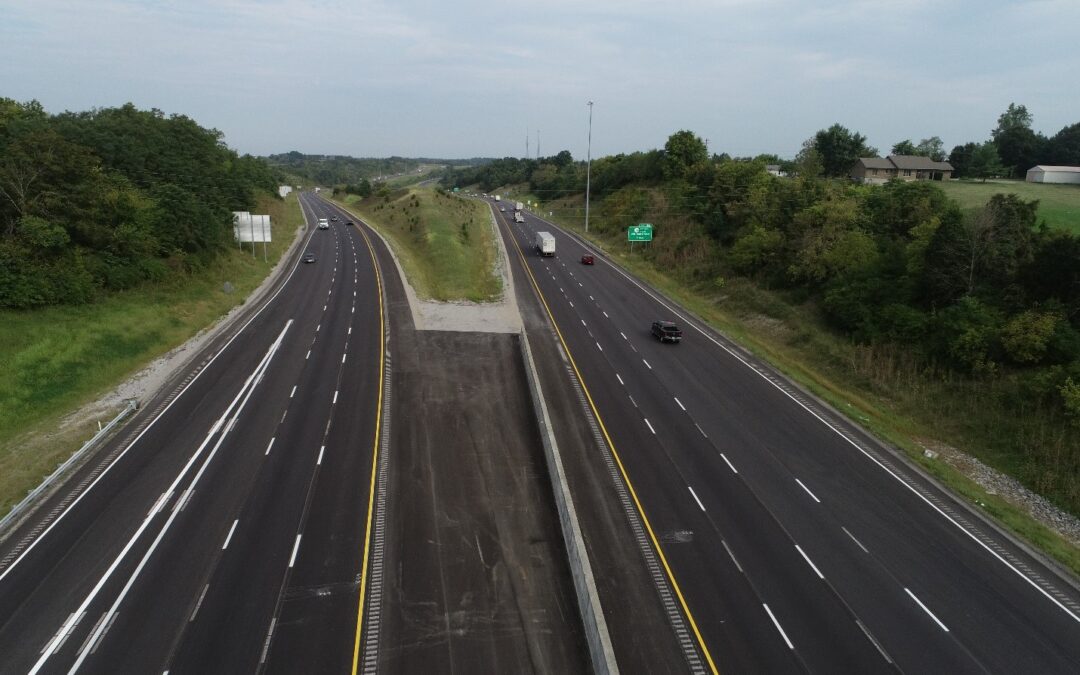What is the most recycled material in the U.S? You could think of paper, cans, plastics, cardboards, … Wrong! Asphalt is the American’s recycled material champion.
What is Asphalt?
Asphalt pavement is made up of about 95% stone, sand, and gravel, all of which are held together by liquid asphalt. The petroleum component liquid asphalt (also known as asphalt cement) bonds the crushed stone mix together and gives asphalt its distinctive black color.
Asphalt is a long-lasting material comprised of crushed rock that has been dried and mixed with liquid asphalt. It’s a natural, 100 percent recyclable material that’s used for everything from road paving to lining water reservoirs and fish hatcheries. Asphalt production plants heat and mix liquid asphalt and crushed rock to make the final asphalt product due to asphalt’s high viscosity. Finally, the asphalt is loaded onto trucks or put into silos for storage.
How Do We Recycle It?
Old asphalt pavement in construction sites is crushed and recycled into new asphalt.
Asphalt chunks or millings are combined with water and additives in an asphalt recycler (or reclaimer). The mixture is swirled and heated for about 20 minutes before it is ready for use in hot mix asphalt. For cold recycling, it does not require the use of heat and thus saves energy.
Warm Mix Asphalt (also known as Green Asphalt or WMA) is a genuine green asphalt. WMA, in reality, uses less energy, produces fewer fumes, has little scents, emits fewer pollutants, and is easier to install than other asphalt materials. WMA is one of the most environmentally friendly types of asphalt pavement accessible because to these factors. We’re able to get improved road compaction, which allows us to extend our paving season and carry longer distances.
Asphalt cement (the glue that keeps the pavement together) can often be reused as a binding agent because it retains its adhesive properties. Fine mineral particles created during the manufacture of asphalt pavement material can be reused, helping to save natural resources.
The Green Effects of Our Recycled Asphalt Pavement
Is this road made of recycled asphalt?
You will never know the difference as long as it’s done properly.
Eaton Asphalt, being the region’s oldest asphalt contractor, has embraced advancements in asphalt construction and technology. There’s a reason we’ve exclusively focused on asphalt for the past 100 years: we honestly feel it’s the most durable, cost-effective, and long-lasting product available. Asphalt provides the best value for the taxpayer and private owner by offering the lowest life cycle cost and the most residual value, whether it is a road, parking lot, airport, or any other specialized pavement system.
Environmental Effects:
+ The Asphalt Industry REUSES / RECYCLES about 100 million tons of asphalt pavement every year, saving a total of $2.1 billion annually.
+ Used Tires and Shingles can also be reused in new asphalt pavement.
+ Better Fuel Economy and Reduce CO2.
Cost Effective:
+ Vehicle Operating costs are reduced due to fewer bumps on smooth roads.
+ The roadway is extended its lifespan which saves taxpayers money.
+ Reduce the Energy to heat asphalt materials as our WMA is constructed at low temperature
+ Asphalt can be constructed at night, saving commuters from costly delays.

